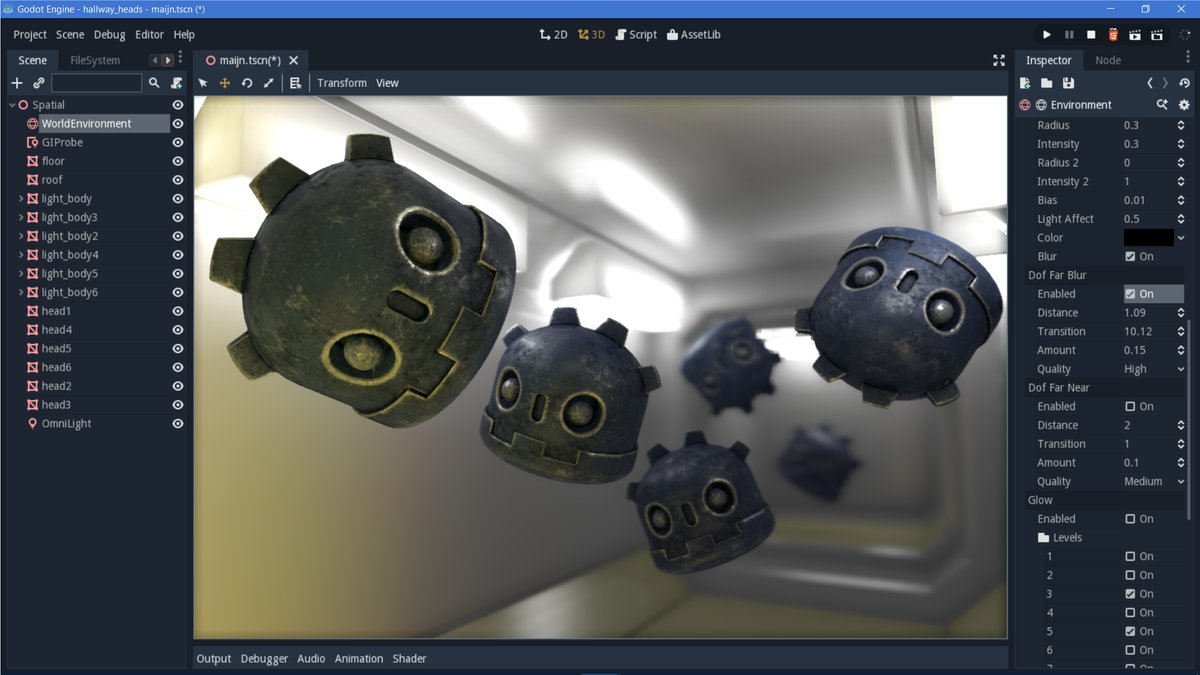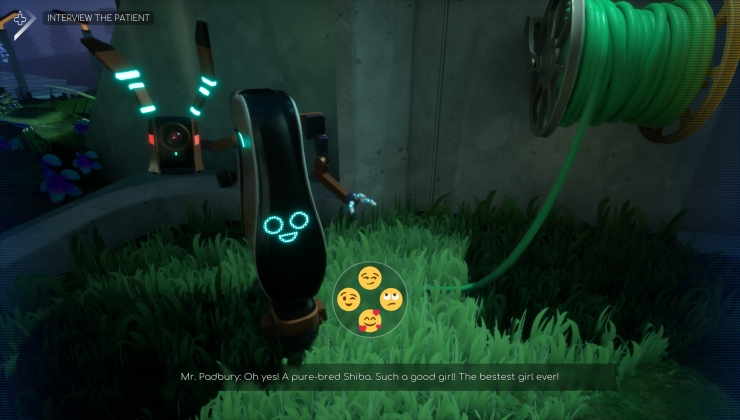
The open source game engine Godot has released the first Alpha in the major 3.0 upgrade, here's a look at what's new.
Highlights
- Beta support for using Python 3 as a scripting language on top of having GDScript, VisualScript and C#.
- A new customizable theme for the editor itself.
- WebGL 2.0 support
- WebAssembly support
- iPhone MFI gamepad support
- Their GDNative API is near completion
- A brand new particle system, focused on speed, customization and more powerful options
- Tons more!
They say they have no plans for Vulkan right now, as it's a lot of work and their refactor for their new OpenGL ES 3.0 / OpenGL 3.3 renderer was already a lot of work. Hopefully, in future, they will be able to get Vulkan support in, or have a new contributor pick up the work to do it.
They are planning regular Alpha builds, possibly weekly or biweekly. For more info on what's new, check out their various devblogs on it.
Anyone using it here? Show off what you've been doing in the comments!
Some you may have missed, popular articles from the last month:
All posts need to follow our rules. For users logged in: please hit the Report Flag icon on any post that breaks the rules or contains illegal / harmful content. Guest readers can email us for any issues.
That's great. The Python part is what i like the most. I don't know much of it, but i prefer to use Python over GDScript, as it's a "real" language.
I've started using GDevelopp recently, unlike Godot no code is needed, check it too if you like this kind of stuff.
I've started using GDevelopp recently, unlike Godot no code is needed, check it too if you like this kind of stuff.
4 Likes, Who?
Yay, it's time to test some PBR in new renderer.
0 Likes
They say they have no plans for Vulkan right nowOf course, one of the beauties of open source is that someone could step in and contribute at any time.
1 Likes, Who?
I wish they had gone with squirrel script instead, it's small, and damned fast but still has a lot of powerful features. If they're using the Python interpreter.... it's slow.
0 Likes
I don't know much of it, but i prefer to use Python over GDScript, as it's a "real" language.I know what you mean, but I can't help but imagine all of the older programmers out there spitting out their drinks at the sight of anyone calling Python a "real" language when it uses an interpreter. ;)
Everything is relative I guess.
Last edited by Hamish on 27 Jul 2017 at 11:35 pm UTC
0 Likes
I know GLES3 is mentioned in the article, but this version has more than just a GLES3 backend since a lot of work has gone into also making the renderer photorealistic. I would personally add "New Photorealistic renderer using OpenGL ES 3.0" as a bullet point. This seems to be where a huge chunk of the time and energy that the lead programmer, Juan Linietsky, was spent.
Last edited by natewardawg on 28 Jul 2017 at 2:07 am UTC
Last edited by natewardawg on 28 Jul 2017 at 2:07 am UTC
1 Likes, Who?
Python isn't as fast as C/C++, but it isn't slow either. It depends a lot on how you use it, and modules can easily be precompiled leaving a binary .pyc file beside the .py file.
A minimal language intended for scripting only will probably be faster, but python is a general purpose language, so you can generally do more with it, with less, or more readable code.
A minimal language intended for scripting only will probably be faster, but python is a general purpose language, so you can generally do more with it, with less, or more readable code.
1 Likes, Who?
Python isn't as fast as C/C++, but it isn't slow either. It depends a lot on how you use it, and modules can easily be precompiled leaving a binary .pyc file beside the .py file.
A minimal language intended for scripting only will probably be faster, but python is a general purpose language, so you can generally do more with it, with less, or more readable code.
Agreed. I don't personally use Python very often, but in addition to what you said, even if it were *very* slow it wouldn't be a problem in most cases because the most computationally heavy code is within the engine itself. So your *slow* Python code would be calling into the fast C++ code anyway.
There are obviously cases where you need fast scripting, but I find usually scene and algorithm optimizations are the main need in optimizing a game, not for more code performance. For instance, having too many collisions in your game or too many draw calls (objects/passes/lights) will kill performance long before your scripting will. For algorithm, an obvious example would be using a merge sort over a selection sort which will dramatically speed up your code. Even fully optimized C++ while using a selection or bubble sort will be slow as molasses. Maybe a more game specific optimization would be to check squared distances instead of square rooted distances when checking lots of objects and all you need to do is find which one is closer. These examples have nothing to do with code performance but can be done in all languages.
1 Likes, Who?
I've cone across it at some point but never tried it. Having some real language support is usually better than some custom language. Whether Python 3 is a good choice I don't know. Python shines because it has a ton of libraries available. Whether this is true for Python 3 as it is for Python 2 I don't know. When it comes to performant scripting languages it's hard to beat LuaJIT though.
I wish them luck, but my impression is that they try creat a Open Source Unity and that they likely have bitten off more than they can chew.
I wish them luck, but my impression is that they try creat a Open Source Unity and that they likely have bitten off more than they can chew.
0 Likes
I don't know much of it, but i prefer to use Python over GDScript, as it's a "real" language.I know what you mean, but I can't help but imagine all of the older programmers out there spitting out their drinks at the sight of anyone calling Python a "real" language when it uses an interpreter. ;)
Everything is relative I guess.
I think he means that python is "real" in that it is not specifically made for & only used in Godot. Adapting to a new scripting language isn't hard but it is still
0 Likes
Yes, I got that, like I said. I still see people spitting out their drinks though.I don't know much of it, but i prefer to use Python over GDScript, as it's a "real" language.I know what you mean, but I can't help but imagine all of the older programmers out there spitting out their drinks at the sight of anyone calling Python a "real" language when it uses an interpreter. ;)
Everything is relative I guess.
I think he means that python is "real" in that it is not specifically made for & only used in Godot. Adapting to a new scripting language isn't hard but it is stilla painan inconvenience.
0 Likes










 How to set, change and reset your SteamOS / Steam Deck desktop sudo password
How to set, change and reset your SteamOS / Steam Deck desktop sudo password How to set up Decky Loader on Steam Deck / SteamOS for easy plugins
How to set up Decky Loader on Steam Deck / SteamOS for easy plugins
See more from me